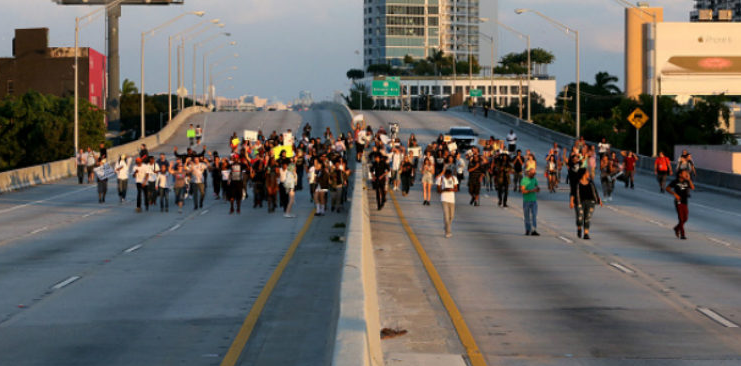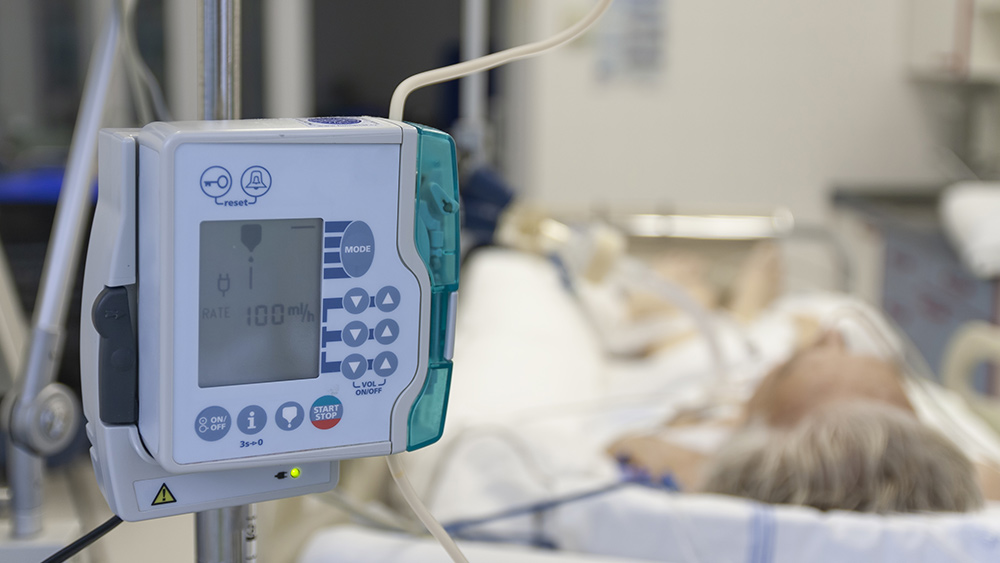Coronavirus surge across America call states’ reopening plans into question
06/24/2020 / By Franz Walker

New surges in Wuhan coronavirus (COVID-19) cases in hot spots across have thrown wrenches into many states’ reopening plans.
Florida, Texas and Arizona have reported a surge in caseloads. So too has California, which broke its record for new cases for the fourth straight day on Tuesday. Meanwhile, even though New Jersey’s caseload has fallen, its governor warns that its transmission rate is starting to “creep up.”
States experiencing renewed surges of coronavirus cases
According to data compiled by Johns Hopkins University and Bloomberg News, coronavirus cases in the U.S. increased by 35,695 from the same time last Monday to 2.33 million. This represented a 1.6 percent gain, which was higher than the 1.3 percent average daily increase of the past seven days. Deaths, on the other hand, increased by 0.7 percent to 120,913.
Florida’s caseload went up by 3.3 percent Tuesday to 103,506, compared with an average 3.8 percent in the previous seven days. On a rolling seven-day basis, the state’s new cases reached 23,397, its highest ever. At the same time, the rate of people testing positive for the first time hit 10.9 percent on Monday, an increase of 3.2 percent from the previous day.
In response to the numbers, local leaders have hurried to react. In Palm Beach County — where President Donald Trump has his primary residence — county commissioners voted unanimously to approve a measure making the wearing of masks mandatory.
Texas recorded 5,489 new cases on Tuesday — a new record for the state — bringing the total to 120,370. This surge represented a 4.8 percent increase, well in excess of the state’s seven-day average of 3.7 percent.
Hospitalizations from COVID-19 in Texas have also surged by more than 10 percent to 4,092. The increase is threatening healthcare systems in counties across the state. In Harris Country — the nation’s third most populous county — the two-week average expansion rate means that the county’s intensive-care capacity will be exhausted in less than two weeks. The office of Harris County Judge Lina Hidalgo expects that surge beds will be full in 38 days. (Related: Texas sees record coronavirus hospitalizations after early reopening.)
Arizona also broke its own daily case record. The state added nearly 3,600 cases, according to tallies released Tuesday. This brings its total caseload to 58,179. The state also reported 42 deaths, bringing its total to 1,384.
California reported 6,522 positive tests on Monday, 2,000 cases higher than its previous daily record. This brought the state’s seven-day average above 4,000 for the first time since the outbreak began. The state now has 184,278 cases according to data compiled by the Mercury News.
Hospitalizations and deaths in California, on the other hand, have remained flat for weeks, down from the peaks recorded in mid-April. However, Gov. Gavin Newsom said on Monday that hospitalizations are starting to creep back up, increasing by 16 percent in the past two weeks.
Reopenings in doubt, but won’t be reversed, yet
The surges have caused many to question these states’ moves to reopen their economies. Even some governors are now considering changing their plans.
In Florida, Gov. Ron DeSantis once said that there was “a light at the end of the tunnel” when new cases started to slow down. However, the resurgent caseload has many now predicting dire consequences for the state. Experts at the Children’s Hospital of Philadelphia and University of Pennsylvania have warned that Florida has “all the markings of the next large epicenter of coronavirus transmission.”
Others have become critical of the governor’s decisions.
“Governor DeSantis has lost control of Florida’s Covid-19 response,” said agricultural Nikki Fried. “His policies are simply not working and he’s recklessly reopening Florida despite the data screaming for caution. Refusing to acknowledge the alarming patterns in cases, hospitalizations and positivity is not only arrogant but will cost lives, public health and our economy.”
In Texas, Gov. Greg Abbot stated that he had no intention of reimplementing lockdown measures during an interview with KTBX television. However, he warned on Monday that “additional measures are going to be necessary” and the state will have to take “tougher actions” should the surges in cases and hospitalizations continue until July.
“The way hospitalizations are spiking, the way that daily new cases are spiking — surely the public can understand that if those spikes continue, additional measures are going to be necessary to make sure we maintain the health and safety of the people of the state of Texas,” Abbot said.
In Arizona, Gov. Doug Ducey’s office announced a number of actions last week to try to stem the spread of the disease. These include continuing to boost diagnostic testing, amplifying contact tracing and increasing awareness of social distancing and face-covering guidelines. However, the announcement made no mention of whether or not the governor had any plans to adjust the state’s reopening.
In California, Gov. Gavin Newsom said that the state could reverse its reopening and shut down parts of its economy again should it lose control of the pandemic. As part of this, he emphasized basic steps such as wearing masks and practicing social distancing as key to preventing a closure from happening.
“It’s your individual decision that will determine our fate and future … to mitigate the likelihood and need that we ever have to toggle back on these stay-at-home orders,” Newsom said at a news conference. “We don’t intend to do that. We don’t want to do that. But I want to make this clear: We are prepared to do that, if we must.”
Sources include:
Tagged Under: Arizona, California, coronavirus, covid-19, disease, Florida, Flu, infections, lockdowns, outbreak, pandemic, quarantine, superbugs, Texas, USA, virus



















